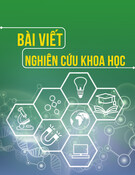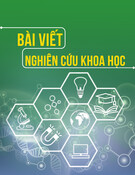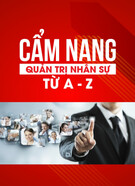
Procedia - Social and Behavioral Sciences 230 ( 2016 ) 249 – 253
Available online at www.sciencedirect.com
ScienceDirect
1877-0428 © 2016 The Authors. Published by Elsevier Ltd. This is an open access article under the CC BY-NC-ND license
(http://creativecommons.org/licenses/by-nc-nd/4.0/).
Peer-review under responsibility of the Ardabil Industrial Management Institute
doi: 10.1016/j.sbspro.2016.09.032
3rd International Conference on New Challenges in Management and Organization: Organization
and Leadership, 2 May 2016, Dubai, UAE
A Review of the Role of Human Capital in the Organization
Mohammad Pasban, Sadegheh Hosseinzadeh Nojedeh*
Department of management, Islamic Azad University, Tabriz Branch, Tabriz, Iran
Abstract
Today, the concepts of human capital and strategic management of human resources are very common in the organizations in
terms of philosophy and technique. The term of “human capital” is considered as a key element in improving the assets of an
organization, since it is a sustainable competitive advantage and increases the employees’ efficiency. Some organizational
theorists apply the rules of human capital theory to prove the ability to create useful competitions between companies by means
of developing individual human resources. Therefore, in the present research, after studying more than 100 papers, the role of
human capital in the organization and the characteristics of human capital have been studied. The results indicate that the
common index, which is important at all levels of management in the organization, is human skill. Those who work in the central
core of the organization must develop higher skills. These people must have enough knowledge, information, innovation, and
creativity to increase the customer’s satisfaction and create competitive advantage for the organization.
© 2016 The Authors. Published by Elsevier Ltd.
Peer-review under responsibility of the Ardabil Industrial Management Institute.
Keywords: human capital, the characteristics of human capital, the indices of measuring human capital
1. Introduction
In the recent decade, the management of organizations has found that human resources have the greatest
importance in gaining sustainable competitive advantage and efficiency. In the world where knowledge and
communication with customers have gained increasing importance, human capital, which shows the volume of
knowledge, technical skills, creativity, and experience of the organization, gains great importance, thus labour force
is considered as productive assets not costly assets (Hendricks, 2002).
* Corresponding author. Tel.: +98-914-452-4755.
E-mail address: Sadegheh.61@gmail.com
© 2016 The Authors. Published by Elsevier Ltd. This is an open access article under the CC BY-NC-ND license
(http://creativecommons.org/licenses/by-nc-nd/4.0/).
Peer-review under responsibility of the Ardabil Industrial Management Institute

250 Mohammad Pasban and Sadegheh Hosseinzadeh Nojedeh / Procedia - Social and Behavioral Sciences 230 ( 2016 ) 249 – 253
Perhaps researching, assessing and controlling human resources are more difficult than other resources of the
organization, since the rarest and most complicated resources in knowledge-based economy are human resources.
Most managers concentrate their strategies on tangible and obvious factors of the organization such as technology
and using physical and financial resources. Due to today’s characteristics of global economy, the emergence of
phenomena such as globalization and increasing growth of technology, and using modern technologies in producing
new and various products, this fact cannot create competitive advantage for the organizations by itself (Garavan,
Morley, Gunnigle & Collins, 2001). Therefore, organizations must concentrate on other factors such as human and
intellectual capitals in order to gain competitive advantage and improve their survival (nordhaug, 1993). McKinsey
published a book under the title of “The war for talent” in 1990 and stated that top managers of organizations have
increasing emphasis on the needs of their organizations to effectively attract, develop, and preserve talents.
According to the above sentences, today, human capital has gained importance more than any other tangible
resources for the organization. In this paper, it has been attempted to explain the concept of human capital, its
importance, and the characteristics of human capital and mention the measuring indices of human capital.
2. Human Capital
Human capital, in simple terms, is anything but physical capital such as properties, equipment and financial
capital. In the previous century, the share of physical capital in gross domestic product in the economy of advanced
countries has sharply fallen, while the share of human capital has risen. This rise in the share of human capital in
gross domestic product has created the concept of knowledge economy. Different types of capital have been
considered as inputs, which enter the process of producing goods and services, however, human capital is not
considered as a simple input, since it plays a more complicated role in the process of producing goods or providing
services. Human capital displays an intrinsic talent, which can both change or moderate itself and other inputs. This
characteristic leads to the perpetual dynamism of economy (Menzies, 2003). Human capital refers to knowledge,
education, work competence, and psychometric evaluations (Namasivayam & Denizci, 2006).
The concept of human capital is rooted in the economic literature (Becker, 1996). Human capital is neither
physical capital nor financial capital. In fact, this capital has been defined as the knowledge, skill, creativity, and
health of the individual (Becker, 2002).
Becker believes that human capital, physical capital, and financial capital are different aspects of capital,
however, their difference is derived from the fact that an individual cannot be separated from their skill, health, and
values, while they can be separated from their assets and properties. Therefore, the most sustainable and
biodegradable capital is human capital. According to Schultz (1961), formal education and training are vital tools for
improving the capacities of production. Moreover, he considers the investment in human capital as the criteria for
educational registration. There are various definitions of human capital, which each of them emphasize different
characteristics of human capital.
In a new definition of human capital, it is considered as a collection of features, life trade, knowledge, creativity,
innovation, and energy, which people invest it in their work (Weatherly, 2003).
Human capital is the investment in human resources in order to increase their efficiency. In fact, the costs of this
investment are provided for future use. Therefore, the learning organization chooses the investment in individuals,
because people are valuable human capital with different qualities (Burund & Tumolo, 2004).
Generally, organizational capital is a cohesive collection of qualitative features, including educational, skilled,
and cultural, which creates value added for the organization (Namasivayam & Denizci, 2006).
3. The Economic and Social Importance of Human Capital
The accumulation of knowledge and human capital has a direct effect on efficiency. In advanced countries, which
the growth of gross domestic product has been raised, employees training level has directly increased their working
life. Most social benefits, derived from the accumulation of human capital, such as good health, more urban
employment, reduction of crime, and increase in social correlation will affect the economic growth in the long term
(Carmeli & Schaubroeck, 2005).

251
Mohammad Pasban and Sadegheh Hosseinzadeh Nojedeh / Procedia - Social and Behavioral Sciences 230 ( 2016 ) 249 – 253
Moreover, the social capital of a country promotes the society’s welfare and directly affects the efficiency of
goods and services. For example, the high level of trusteeship in the society reduces the costs of commercial
transactions (Rastogi, 2002).
The organizations’ emphasis on human capital is based on the view that the market value of organizations
depends more on intangible assets especially human capital than on tangible assets. Employing and keeping the best
employees in the organization is a part of this deal. Organizations must raise the level of organizational learning,
increase the level of employees’ skills and abilities through encouraging them, and provide an atmosphere where
knowledge is created, shared and applied and learning becomes a habit (Stiles & Kulvisaechana, 2003).
4. The Features of Human Capital
4.1. Creativity and innovation
The survival of organizations depends on their power of rebuilding. This rebuilding is accomplished through
adapting the goals to the present circumstances and improving the methods of accomplishing these goals. Therefore,
organizations must encourage creativity and innovation, since non-creative organizations will become defunct or
modify themselves (Daft, 1998).
4.2. Knowledge and skill
The fact that humans are valuable resources within the organization is not new. According to Nerdrum and
Erikson (2001), in the early seventeenth century, William Petty, the famous economist, calculated the value of
workers through insurance officers. In later centuries, Adam Smith wrote about the value of workers’ knowledge
and skill and their effect on the product process and the efficiency of the company (Smith, 1910). Moreover, Smith
stated that training is a sort of investment in human, which supports the skilled and trained workers.
Empowering employees as well as giving them opportunity to make decision will increase their motivation and
reduce their resistance to organizational changes (Thomas et al., 1996).
Knowledge management is an effective field, which is created through various factors such as human resources,
organizational development, management change, information technology, management credit, measuring
performance, and placing value (Bukowitz & Williams, 1999). Knowledge management is the process of having
commercial knowledge and using it in order to stimulate innovation (Nonaka & Reinmoeller, 2000).
Although the correlation between economic growth and knowledge is organized (Teece, 2000), recently
management researchers like Drucker (1993) suggested that scientific work be the central resource of developed
economy and employees be the central work forces. The writers stated that knowledge and its management are
always important, economic growth has been built upon the knowledge, and intellectual capital is very important for
the development of product. Therefore, more scientific attention is needed for perceiving, describing, and measuring
the knowledge of economy and product (Bontis, 1998).
4.3. Value added
Value added: human resources can help the company with having competitive advantage and value added and
operating comprehensive quality plans. Employees can create the predictions at different level of the organization,
define the values, missions and goals, design strategic plans, and implement those plans according to values. Value
added can be reinforced through motivating and training the employees (Armstrong, 2008).
4.4. Competitive advantage
In order to have competitive advantage, the company must distinguish their products from their competitors
through employing more talented and skilled employees than the employees of the competitors. Employees’ talents

252 Mohammad Pasban and Sadegheh Hosseinzadeh Nojedeh / Procedia - Social and Behavioral Sciences 230 ( 2016 ) 249 – 253
such as good performance, flexibility, creativity, and the ability to give direct services to the customer play a key
role in creating competitive advantage for the organization (Armstrong, 2008).
Increasingly, intellectual capitals, which are used as intangible assets, are valuable operators within an
organization. These capitals are an important economic resource and have a direct competitive effect on the market
(Groves, 2002).
4.5. Increasing the customer’s satisfaction from the organization
The customer’s commitment to a service organization significantly depends on the employees related to the
customer. Zeithmal, Berry, and Parasuraman (1996) suggested that higher quality of services creates positive
behavioral intentions in customers and affects their loyalty to the organization, which brings positive financial
consequences for the company. Therefore, the customer’s loyalty to a service company is determined through the
employees’ behavior towards that customer. In fact, service companies must encourage this behavior. developing
the relationship will increase the customer’s commitment to the organization, so that they will become the
permanent customers (Yoon, & Suh, 2003).
Evaluating the services by the customer depends on the competence, attitude, experience, and skill of employees,
thus the behavior of employees related to customers will affect the future of service relationship (Gonzalez &
Garazo, 2006).
5. The Indices of Measuring Human Capital
When people are considered as the organization’s assets, the ability to quantify the value of these assets becomes
important. This fact is vital for making decisions about the management and maximizing the rate of return to
investment.
In the research conducted by Guest (1997), different indices have been identified for measuring the dimensions
and features of human capital. They include financial indices such as selling and financial performance, the indices
of efficiency or goods and services, services provided to the customer, number of errors, customer’s satisfaction, and
the quality of goods and services, and finally the indices of delay, assentation etc.
The results of research conducted by Stiles and Kulvisaechana (2003) about the indices of human capital as well
as their measurement are presented in Table 1.
Table 1. The indices of measuring human capital.
The activities of human capital Possible measurement
Employing new forces Cost, time, quantity, quality, compatibility with strategic criteria
Rotation, dismissal The reasons of quitting job
Reward, compensating the service Level of payments, differences, evaluating justice, customer’s satisfaction, employees
‘satisfaction, variety
Competence, training Measuring competence, skills, the distance between competence and investment in
training
The diagram of human force Age, rate of promotion, cooperation in management activities, knowledge, variety
Utilization criteria Per capita income, operating expenses, real value added
6. Conclusion
According to researches, since human capital is a new topic in human resources, it is strategic and has been
grown increasingly in organizations. In summary, human capital plays an important role in people’s development,
improving the life and income, increasing knowledge, skill, and product capacities, economic growth and reducing
poverty. Since in the world, there are new revolutions in fighting against capitalism, human forces become more
important than any other time. According to recent revolutions, future researches on human capital will follow two
goals, i.e. measuring the gaps within human capital and how human capital leads to more efficiency and revenue.

253
Mohammad Pasban and Sadegheh Hosseinzadeh Nojedeh / Procedia - Social and Behavioral Sciences 230 ( 2016 ) 249 – 253
Since employees and individuals have applied human capital to their job, they receive their investment reward from
human capital through salary, benefits, job satisfaction, and more learning opportunities as well as promotion. These
achievements allow families and governments to invest a large part of their resources in education and training
human force. It is worth mentioning that economic attitude towards human capital (education and training labour
force) is vital for country’s efficiency and economic success.
References
Armstrong, M. (2008). Strategic human resource management (4th ed.). London, UK: Kogan Page.
Becker, G. S. (1996). The economic way of looking at behavior: The noble lecture. Stanford University, California: Hoover Institution Press.
Becker, G. S. (2002). The age of human capital. Education in the Twenty-First Century, 3–8.
Bontis, N. (1998). Intellectual capital: An exploratory study that develops measures and models. Management Decision, 36(2), 63–76.
Bukowitz, W. R., & Williams, R. L. (1999). The knowledge management field book. New Jersey, USA: FT Press.
Burund, S., & Tumolo, S. (2004). Leveraging the new human capital: Adaptive strategies, results achieved, and stories of transformation. Boston,
USA: Nicolas Brealey America.
Carmeli, A., & Schaubroeck, J. (2005). How leveraging human resource capital with its competitive distinctiveness enhances the performance of
commercial and public organizations. Human Resource Management, 44(4), 391–412.
Daft, R. L. (1998). Essentials of organization theory and design. South-Western College Publishing.
Drucker, P. F. (1993). Managing in turbulent times. New York: HarperCollins.
Garavan, T. N., Morley, M., Gunnigle, P., & Collins, E. (2001). Human capital accumulation: The role of human resource development. Journal
of European Industrial Training, 25, 48–68.
Gonzalez, J. V., & Garazo, T. G. (2006). Structural relationships between organizational service orientation, contact employee job satisfaction,
and citizenship behavior. International Journal of Service Industry Management, 17(1), 23–50.
Groves, S. (2002). Knowledge wins in the new economy. Information Management, 36(2).
Guest, D. E. (1997). Human resource management and performance: A review and research agenda. The International Journal of Human
Resource Management, 8(3), 263–276.
Hendricks, L. (2002). How important is human capital for development? Evidence from immigrant earnings. American Economic Review, 92(1),
198–219.
Menzies, M. (2003). Human capital development in research, science and technology. Retrieved from
http://citeseerx.ist.psu.edu/viewdoc/downlaod.
Namasivayam, K., & Denizci, B. (2006). Human capital in service organizations: Identifying value drivers. Journal of Intellectual Capital, 7(3),
381–393.
Nerdrum, L., & Erikson, T. (2001). Intellectual capital: A human capital perspective. Journal of Intellectual Capital, 2(2), 127–135.
Nonaka, I., & Reinmoeller, P. (2000). Dynamic business systems for knowledge creation and utilization. In C. Despres & D. Chauvel (Eds.),
Knowledge horizons: The present and the promise of knowledge management. Oxford: Butterworth Heinemann.
Nordhaug, O. (1993). Human capital in organizations: Competence, training and learning. Oslo, Norway: Scandinavian University Press
Publication.
Rastogi, P. N. (2002). Knowledge management and intellectual capital as a paradigm of value creation. Human Systems Management, 21(4), 229-
240.
Schultz, T. W. (1961). Investment in human capital. The American Economic Review, 51(1), 1–17.
Smith, A. (1910). The wealth of nations. London: Dent and Dutton.
Stiles, P., & Kulvisaechana, S. (2003). Human capital and performance: A literature review. University of Cambridge: Cambridge.
Teece, D. J. (2000). Managing intellectual capital. Oxford: Oxford University Press.
Thomas, D., kapplman, A., & Richards, C. (1996). Training empowerment & creating a culture for change, Empowerment in organization, 4, 3,
26-29.
Weatherly, L. A. (2003, March). Human capital—the elusive asset measuring and managing human capital: A strategic imperative for HR.
Research Quarterly. Retrieved June 1, 2003, from http://www.shrm.org/research/quarterly/0301capital.pdf.
Yoon, M. H., & Suh, J. (2003). Organizational citizenship behaviors and service quality as external effectiveness of contact employees. Journal
of Business Research, 56(8), 597–611.
Zeithmal, V. A., Berry, L. L., & Parasuraman, B. A. (1996). The behavioral consequences of service quality. Journal of Marketing, 60, 31–46.


























